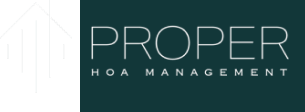Homeowners’ Association (HOA) dues are critical for maintaining the community’s infrastructure, services, and overall appeal. However, dealing with late dues payments can be challenging for association board members.
Proper HOA Management offers Dallas associations a systematic approach to managing late dues that ensures fairness, legal compliance, and the community’s financial health.
If you need help covering early communication attempts, steps beyond emails and getting a management team involved, here’s a look at how you should approach collecting late dues.
Early Communication: Setting the Tone
Early and proactive communication is key to effectively addressing late dues payments.
Before you even have late payments on the table, your board should establish a clear and structured communication process that will help prevent misunderstandings. Your communication should be fair but ensure homeowners are fully aware of their responsibilities and the consequences of late payments.
Start by sending friendly reminders as soon as a payment becomes overdue. These reminders, whether by email or letter, should highlight the importance of timely payments and their impact on the community.
By addressing the issue early on with a friendly and informative tone, HOAs can often resolve late payments without needing to escalate the situation, maintaining a positive relationship with homeowners while ensuring the community’s financial health.
Along with your reminders, provide detailed invoices that clearly paint a picture of the owner’s financial obligations.
These invoices should include key information such as the due date, the amount owed, and any applicable late fees. Transparency in billing clarifies what is expected from homeowners and helps reduce disputes and confusion.
These initial reach outs should have goodwill in mind. After all, a late payment could be due to a family emergency or other unexpected event. Offering a short grace period within your invoices and letters shows goodwill and can accommodate any genuine difficulties a homeowner might be experiencing.
Strengthening Efforts Beyond Emails and Calls
When initial reminders and invoices don’t yield results, escalating the communication efforts is essential.
Certified letters are an effective way to display the importance of the situation. Certified mail provides formal notice and ensures that the homeowner receives the communication. It also serves as a record of your association’s outreach efforts.
If letters seem to go unread, arranging in-person meetings can be more effective than digital communication, allowing for a face-to-face discussion about the overdue payments and potential solutions.
This personal touch often leads to a resolution. Furthermore, in-person meetings can add a little more humanity behind your efforts, especially if you offer flexible payment plans that can assist homeowners facing financial difficulties. Even in the escalation period, showing the HOA’s willingness to collaborate and find manageable solutions for its members can go a long way to maintaining positive relations with owners.
Getting Legal Involved
If communication attempts fail, involving legal assistance may become necessary to safeguard the HOA and the community’s interests. It’s crucial to follow a legal protocol to ensure that all actions are compliant with relevant laws and regulations, thereby protecting the HOA from potential legal repercussions.
One of the first steps in this process is working with your management company and issuing a formal demand letter from an attorney. This letter not only underscores the seriousness of the situation but also serves as an official record of the HOA’s attempts to resolve the issue.
Before moving towards litigation, mediation services should be considered. Mediation provides a platform for both the HOA and the homeowner to discuss the issue with the help of a neutral third party. This approach can often lead to a mutually agreeable solution without the need for a court battle, preserving relationships within the community and reducing legal expenses.
Taking the steps to consult with legal experts is essential to ensure that all actions taken are in compliance with state and local laws. Proper HOA Management can facilitate access to experienced attorneys who specialize in HOA issues, providing valuable guidance and support throughout the process. Our proactive legal consultation can help your association navigate complex legal landscapes, ensuring that their actions are both effective and legally sound.
Addressing Property Liens
In extreme cases where dues remain unpaid, more serious actions such as property liens may become necessary. This step should always be a last resort due to its significant impact on homeowners.
A lien is a legal claim against the property for unpaid dues, which can severely affect the homeowner’s ability to sell or refinance their property. The presence of a lien on a property title is a powerful reminder of the importance of timely payments and underscores the financial obligations homeowners have to their community.
In particularly severe situations, if dues remain unpaid for an extended period, your HOA may proceed with foreclosure.
Throughout the entire process, from filing a lien to considering foreclosure, maintaining open communication with the homeowner is crucial. Continued dialogue can often lead to a resolution before these severe actions are fully realized, helping to preserve the community and assist homeowners in meeting their obligations.
Proper HOA Management is Your Partner in Association Finances
At Proper HOA Management, we understand the complexities and sensitivities involved in managing late dues payments. Our team is dedicated to supporting association board members with a strategic and effective approach. By partnering with us, you can ensure that your community remains financially healthy and harmonious. Contact us today to learn more about our services and how we can assist your HOA in maintaining its financial integrity.


